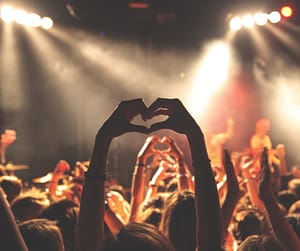A solo musician is expected to master many instruments at once. And the reason for that is due to their status as the sole composer of their music. But releasing records alone is not enough. To appeal to a broader audience, solo musicians must get on tours across cities or even countries. Live performance determines the quality of a real musician.
If you have been living as a solo musician, then you have to improve your live performance stage after stage. Here are the three steps to perform live better.
Maximizing You Comfort
 Most solo musicians play either a keyboard or a guitar. And if you work as an entertainer in a bar or club, you are probably capable of playing both instruments. In that case, you should pay attention to the details.
Most solo musicians play either a keyboard or a guitar. And if you work as an entertainer in a bar or club, you are probably capable of playing both instruments. In that case, you should pay attention to the details.
Trivial factors, as minor as the type of seat you are sitting on, matter. If you take a guitar as your primary instrument, then you have to make sure that you have the right amps, the right kind of mic stand, and picking the best guitar stool. If you are not comfortable, you cannot expect yourself to bring the best to your audience.
For keyboardists, Roland Cube Set is the ideal amp for mobile live sessions. The battery durability is also extraordinary. The amp can run for 15 hours per charge. As for the seat, K & M 14045 can be an economical choice before you hit the road for a tour.
Practice Regularly
Being a solo musician is more challenging than being in a music group. You take all the responsibilities of your work. And thus, you cannot afford any mistakes, especially in your live performance.
Therefore, setting up a schedule to train yourself is mandatory. Do not fill your time with only performing. You cannot develop your musicianship with that manner. Creativity needs both mundane drill and exploration to go hand in hand. It is a vital principle so that your music can still sound authentic.
Hook Your Audience
 Before you know how to hook your audience, you must know things that can turn them off. First, you must avoid getting drunk in your show. This attitude is essential because we all know how liquors and boozes are all abundant in music shows.
Before you know how to hook your audience, you must know things that can turn them off. First, you must avoid getting drunk in your show. This attitude is essential because we all know how liquors and boozes are all abundant in music shows.
Second, never stop your music unless you experience a severe technical issue. Cutting off a performance leaves a terrible impression to anyone who is in the show. Even if you make a mistake, you should improvise and adapt to the situation.
Third, you should actively think of what your audience likes. During a break in the show, ask them what they want to hear from you. Active interaction is a good showmanship trait.…

